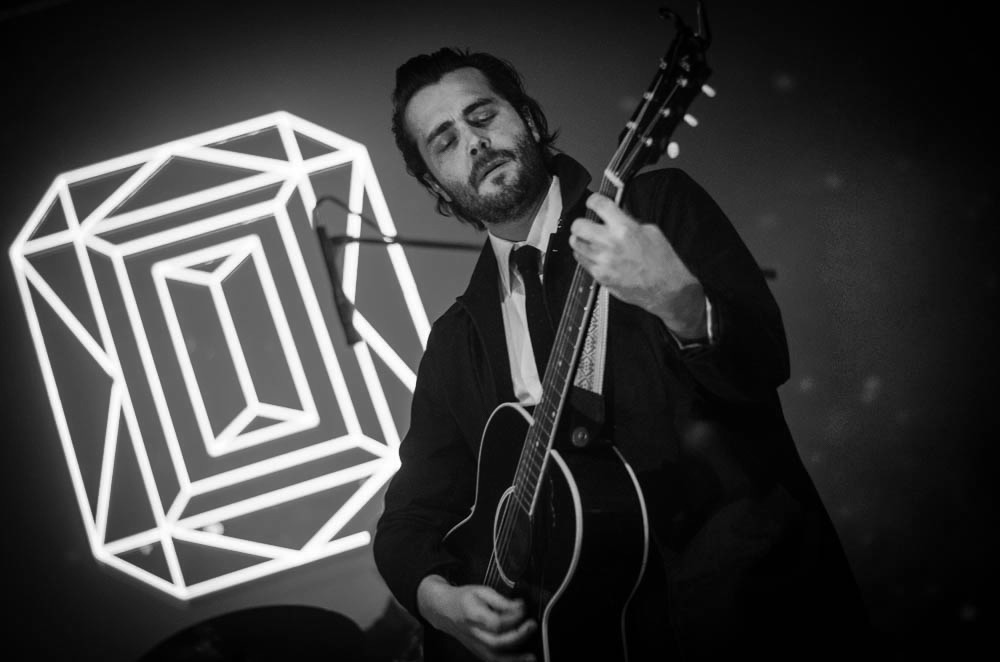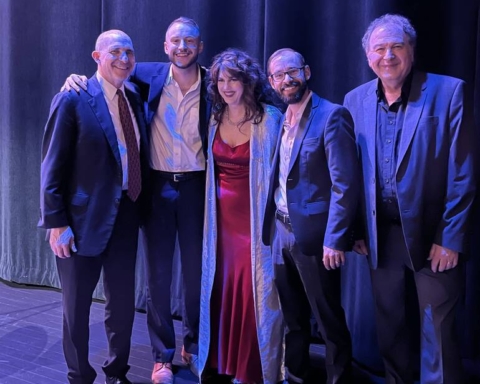Lord Huron’s new album demonstrates West-Coast indie rock
Lord Huron, a Los Angeles based indie band, entered the music scene in 2013 with its debut album “Lonesome Dreams,” and continued its musical journey with the 2015 album “Strange Trails.” Following up these two albums is the group’s junior album, “Vide Noir.”
The new album comes in the wake of sudden fame for Lord Huron. Their 2015 song, “The Night We Met,” was featured in season one of “Thirteen Reasons Why,” a television show that captured the nation’s attention. The song became popular, resonating with many listeners and creating buzz around Lord Huron’s reputation in the music world.
Though “Vide Noir” features a diverse mix of tempos and stylistic choices that break away from Lord Huron’s previous albums, the project is cohesive and comes as a lovely surprise to listeners. Unlike “Strange Trails” and “Lonesome Dreams,” “Vide Noir” seems personal, and even painful at times, almost like a 12-track letter to the one that got away.
This album distances itself from the wanderlust themes of the first two albums, instead establishing itself as a West Coast-style indie rock album. Though it features some folk vibes traditional of Lord Huron, the new album shows a commitment to progression on the band’s behalf.
“Time and Space,” the first track on the album, showcases a simple melody, reminiscent of a Mumford and Sons vibe with a twist. There is a definite attempt at atmospheric creation here, a successful choice that leaves listeners craving the next 11 tracks the album has to offer.
Those tracks don’t disappoint.
“Ancient Names (Part I)” starts out sounding like a warped record or a transistor radio that hasn’t quite been tuned to the right station. It creates this nostalgic sort of feeling that’s intriguing to the ear. That sound quickly transitions into a rustic toe-tapper that brings a unique sound quality to the album.
“Never Ever” showcases an edgy rock vibe; though the guitar overpowers lead singer Ben Schneider’s vocals a bit, it features a well-crafted melody line and sonic quality. It aligns with the styles of The Killers and Two Door Cinema Club, distancing Lord Huron from its original musical style, which seems to be predominantly indie-folk.
That indie-folk style pairs itself with rock in “Secret of Life,” a song that sounds like it deserves to be the opening track of a Hollywood movie. The dark timbre of the guitar drives the song, paired with this jubilant sense of urgency that springs from Schneider’s voice as he sings, “You showed me the secret of life/I can’t forget that look in your eye.”
Filled with steady beats, Lord Huron explores a cosmic feel in “Wait by the River,” the song inside the album that most represents remorse towards harsh love. Schneider begs for a second chance that has long since dissipated. Waiting won’t change the weight of words, but, nonetheless, he grasps at straws, singing, “I’m a fool; I’m just a man/If I only could hold you again.”
Lord Huron’s “Vide Noir” is a musical experience that blooms with pain, angst and loss. At some points the experience is otherworldly, cosmic—true to the translation of the album’s name, which means “black void.” Inside this void, though, listeners find relatability, artful tuneage and a manifestation of emotion.
By Meghan Hall, News Assignment Editor
hallml18@bonaventure.edu






